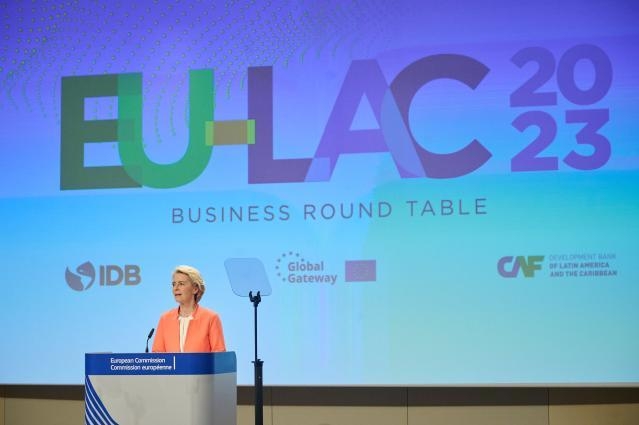The European Commission and the European Investment Bank (EIB) have agreed to cooperate on energy, including hydrogen, with Argentina, Chile, and Uruguay. A similar deal with Brazil could also be announced soon. European Commission Üresident Ursula von der Leyen said that Europe will invest more than €45 billion ($50.6 billion) in Latin America and the Caribbean until 2027 via the Global Gateway program. Europe wants to promote renewable energy and energy efficiency, in addition to using hydrogen and its derivatives in applications such as industrial processes, transport, and energy storage.
Profas Energy Consult has partnered with Australia's Energy Exemplar to model the needs of the hydrogen value chain. The companies plan to optimize hydrogen and power-to-X projects. Profas Energy Consult said that this is the first time that advanced modeling will be used for the hydrogen market.”In a world first, Profas Energy Consult, who specialize in development support and implementation coaching for green hydrogen projects, will work with Energy Exemplar to build on its market-leading modeling software platform, PLEXOS, and optimize hydrogen and power-to-X projects,” said the Australian company, arguing that this is the first time advanced modeling will be used for the hydrogen market.
Ohmium has partnered up with Aquastill, a Dutch modular membrane distillation company, to use desalinated seawater as an input in green hydrogen production. “By integrating Aquastill's desalination capabilities with Ohmium's modular green hydrogen electrolyzers, the collaboration will create new decarbonization opportunities for businesses operating in coastal areas,” said the companies. Co-locating PEM electrolyzers with offshore wind farms could be a potential application, enabling the production of green hydrogen at source.
Ecotricity founder Dale Vince has announced the launch of Ecojet, “the world's first electric airline powered by renewable energy.” Ecojet's fleet will comprise conventional planes retrofitted with hydrogen-electric powertrains. “Once converted, the aircraft will operate with the same power output as before, but with a one-hundred percent reduction in CO2 emissions,” said the company. Ecojet plans to launch two different turboprop planes (a 19-seat version and a 70-seat version) in 2025, one year after the commencement of flights.
This content is protected by copyright and may not be reused. If you want to cooperate with us and would like to reuse some of our content, please contact: editors@pv-magazine.com.



3 comments
By submitting this form you agree to pv magazine using your data for the purposes of publishing your comment.
Your personal data will only be disclosed or otherwise transmitted to third parties for the purposes of spam filtering or if this is necessary for technical maintenance of the website. Any other transfer to third parties will not take place unless this is justified on the basis of applicable data protection regulations or if pv magazine is legally obliged to do so.
You may revoke this consent at any time with effect for the future, in which case your personal data will be deleted immediately. Otherwise, your data will be deleted if pv magazine has processed your request or the purpose of data storage is fulfilled.
Further information on data privacy can be found in our Data Protection Policy.